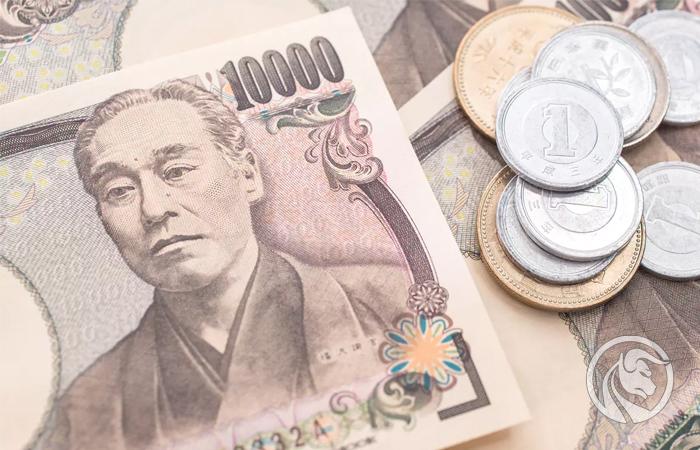Is it time for change in Japan?
It might seem that nothing could be more important during the week of the Federal Reserve meeting, but could it be different this time? Possibly, as long as the Japanese have the courage to act. Is it time to raise rates in the Land of the Rising Sun?
Record profits of Japanese companies
While we often think of the ECB's or even the Fed's policy over the last two decades as very expansionary, against the background Bank of Japan everything else appears restrictive. The last time interest rates in Japan increased was in… 2007! In turn, since 2016, the Bank of Japan remains in a negative interest rate regime. By that time, the Fed had already completed two full cycles of rate increases. The Western world is currently talking about rate cuts, so why should it be any different in Japan? Paradoxically, interest rate increases in the US could have helped with this - the very strong weakening of the yen has resulted in Japanese companies recording record profits, and since there are vibrant trade unions in the country, this year's negotiations are bringing the highest salary increases in about 30 years! Perhaps in Poland a 5-6% wage increase is not impressive, but in Japan, where the average inflation in the last increase in 2007 was just over 0,5%, it is a completely different story. In the face of such a growth rate, the Bank of Japan sees an opportunity to accelerate inflation in the longer term and to abandon, well, pathological monetary policy. What should we call a situation in which the central bank owns more than half of the debt issued by the government and, through ETFs, controls approximately 7,5% of the capitalization of Japanese companies listed on the stock exchange?
Possible pressure on the debt market
Assuming that the Japanese actually raise rates (the market is divided on whether it will happen tonight or only at the April meeting), the question remains about the consequences. It might seem that an increase from -0,1 to 0% does not change much. But let's remember that we are talking about changing an image that has remained unchanged for years. We are talking about a violation of the carry trade (rates in the US are going to start decreasing and in Japan are going to increase), we are talking about possible pressure on the debt market around the world, we are talking about a possible change in the outlook (especially if the yen strengthens) for the stock market, where for years it was a one-goal game. Market reactions are usually not proportional, especially in response to "epochal" events.
Apart from the Bank of Japan, we have a lot of other decisions this week. On Wednesday, the Fed will probably still not clearly indicate the date of the first cut. The inflation data are somewhat uncomfortable for him, although there are some signs of slowdown in the US should allow dovish rhetoric to persist. On Thursday, rate decisions will be made in Great Britain, Switzerland, Norway and Turkey. At 9:05 a.m. on Monday, the euro costs PLN 4,31, the dollar PLN 3,95, the franc PLN 4,47, and the pound PLN 5,04.
Source: Dr. Przemysław Kwiecień CFA, XTB






















![Forex Club – Tax 9 – Settle tax on a foreign broker [Download the Application] Forex Club - Tax 9](https://forexclub.pl/wp-content/uploads/2024/02/Forex-Club-Podatek-9-184x120.jpg?v=1709046278)
![Trading View platform – solutions tailored to the needs of traders [Review] trading view review](https://forexclub.pl/wp-content/uploads/2024/03/trading-view-recenzja-184x120.jpg?v=1709558918)
![How to connect your FP Markets account to the Trading View platform [Guide] fp markets trading view](https://forexclub.pl/wp-content/uploads/2024/02/fp-markets-trading-view-184x120.jpg?v=1708677291)
![How to invest in ChatGPT and AI? Stocks and ETFs [Guide] how to invest in chatgpt and artificial intelligence](https://forexclub.pl/wp-content/uploads/2023/02/jak-inwestowac-w-chatgpt-i-sztuczna-inteligencje-184x120.jpg?v=1676364263)


![WeWork – the anatomy of the collapse of a company valued at $47 billion [WeWork, part II] wework bankruptcy story](https://forexclub.pl/wp-content/uploads/2024/04/wework-bankructwo-historia-184x120.jpg?v=1711729561)
![Adam Neumann – the man who screwed up Softbank [WeWork, part AND] adam neumann wework](https://forexclub.pl/wp-content/uploads/2024/04/adam-neumann-wework-184x120.jpg?v=1711728724)





![How to transfer shares to another brokerage office [Procedure description] how to transfer shares to another brokerage house](https://forexclub.pl/wp-content/uploads/2024/03/jak-przeniesc-akcje-do-innego-biura-maklerskiego-184x120.jpg?v=1709556924)

![The most common mistakes of a beginner trader - Mr Yogi [VIDEO] Scalping - The most common mistakes of a beginner trader - VIDEO](https://forexclub.pl/wp-content/uploads/2024/03/Scalping-Najczestsze-bledy-poczatkujacego-tradera-VIDEO-184x120.jpg?v=1711601376)
![Learning patience: No position is also a position - Mr Yogi [VIDEO] Scalping - Learning patience - No position is also a position - VIDEO](https://forexclub.pl/wp-content/uploads/2024/03/Scalping-Nauka-cierpliwosci-Brak-pozycji-to-tez-pozycja-VIDEO-184x120.jpg?v=1710999249)
![When to exit a position and how to minimize losses - Mr Yogi [VIDEO] Scalping - When to exit a position and how to minimize losses - VIDEO](https://forexclub.pl/wp-content/uploads/2024/03/Scalping-Kiedy-wyjsc-z-pozycji-i-jak-minimalizowac-straty-VIDEO-184x120.jpg?v=1710336731)

















